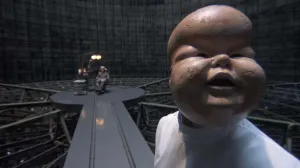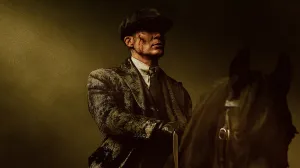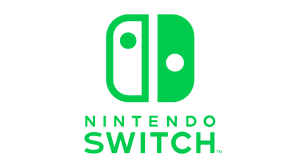When a recent, controversial adaptation of Alan Moore and Brian Bolland’s modern classic Batman: The Killing Joke came to DVD and Blu-ray, an unusual criticism arose of the book after the film.
Videos by ComicBook.com
Over and over again in conversation — on Facebook and Twitter — fans claimed they “never liked” The Killing Joke graphic novel, or at least that it was wildly overrated, as part of their critique of the R-rated, animated movie.
Below, you can see a sampling…

Even before all this awkward business, I’ve never thought of The Killing Joke as a real “classic”. Great moments and art, not a great story.
— Rollo Tomasi (@DiseuphoriaFilm) July 23, 2016
The Killing Joke is not a classic story. It has classic art and bits of a good story. Fight me. #TheKillingJoke https://t.co/VIZyefoXu7
— Wakandas Favorite DJ (@djbenhameen) July 27, 2016
Call me crazy, but the Killing Joke comic was not that good by either Alan Moore or Batman standards.
— Mike Gray (@mikecincinnati) July 28, 2016
The Killing Joke is an essential Batman V Joker story. That being said… It’s highly overrated. I’m a big fan, but it’s not that good.
— Daddy Meezus (@TheLifeOfMeezus) July 23, 2016
A number of fans pointed to the fact that even Alan Moore, the book’s brilliant and outspoken author, didn’t find The Killing Joke to be his best work.
Something similar happened — albeit in not quite as pronounced a manner — when Batman v Superman: Dawn of Justice came to theaters.
Among the many criticisms of the film online were a number of fans talking about how Batman: The Dark Knight Returns — the comic on which much of the film is based — wasn’t that good, either.
Without going into a review of those properties, the sudden surge in fans openly questioning long-accepted comic book canon (here, we mean the books, music, and art that have been the most influential in shaping comics, not the “official continuity” kind of canon) is an interesting phenomenon.
With movies making billions of dollars and TV shows drawing millions of fans every week, it’s clear that other-media adaptations are shaping the future of comics.
Look no further than the absence of X-Men and Fantastic Four characters in upcoming Marvel Comics or the costume redesigns for Superman and Wonder Woman to see that, yes, the way the on-comics-reading audience perceives these characters is gaining traction and weight.
In an environment like that, can a “bad” adaptation actually hurt a property’s legacy?
In the cases of both The Killing Joke and The Dark Knight Returns, it’s hard to say: the former has been controversial for years, so much so that feminist critics argued that the movie version never should have been made in the first place.
The latter suffered not only a terrible sequel (although the third installment has been much better), but the descent of its creator, Frank Miller, from his position as one of comics’ most influential thinkers into being often described as a crank, a racist, or worse.
Is it possible, then, to get an unobstructed view of any “classics?” If indeed the movies have contributed to a sense that maybe projects like The Killing Joke aren’t quite as good as we remembered, does that even matter in a world where the movies will move units? The Killing Joke returned to the top of the best-seller charts, and Batman v Superman resulted in successful new printings of of The Dark Knight Returns as well as the Death and Return of Superman stories.
Conversely, can a good adaptation retroactively convince people that they liked the comic more than they “thought” at the time? Again, it’s hard to say: the critically divisive Civil War comic sold like hotcakes during the Captain America: Civil War theatrical run, but in spite of its reputation, the graphic novel has sold pretty much non-stop since the comics were released a decade ago.
These are, perhaps, the risks we take and the questions we must ask ourselves as comics “go mainstream,” and stories that were written to be read by thousands are suddenly finding their way into potentially millions of hands and minds. How can the broadening of the audience that appreciates and cares about comics impact our concept of canon? Will a larger, more diverse readership call into question long-held beliefs about “greatness,” or will the accepted authorities on comics imprint our values onto the next generation of casual readers?
Maybe we’ll find out more around the release of DC’s animated version of Teen Titans: The Judas Contract early next year.








